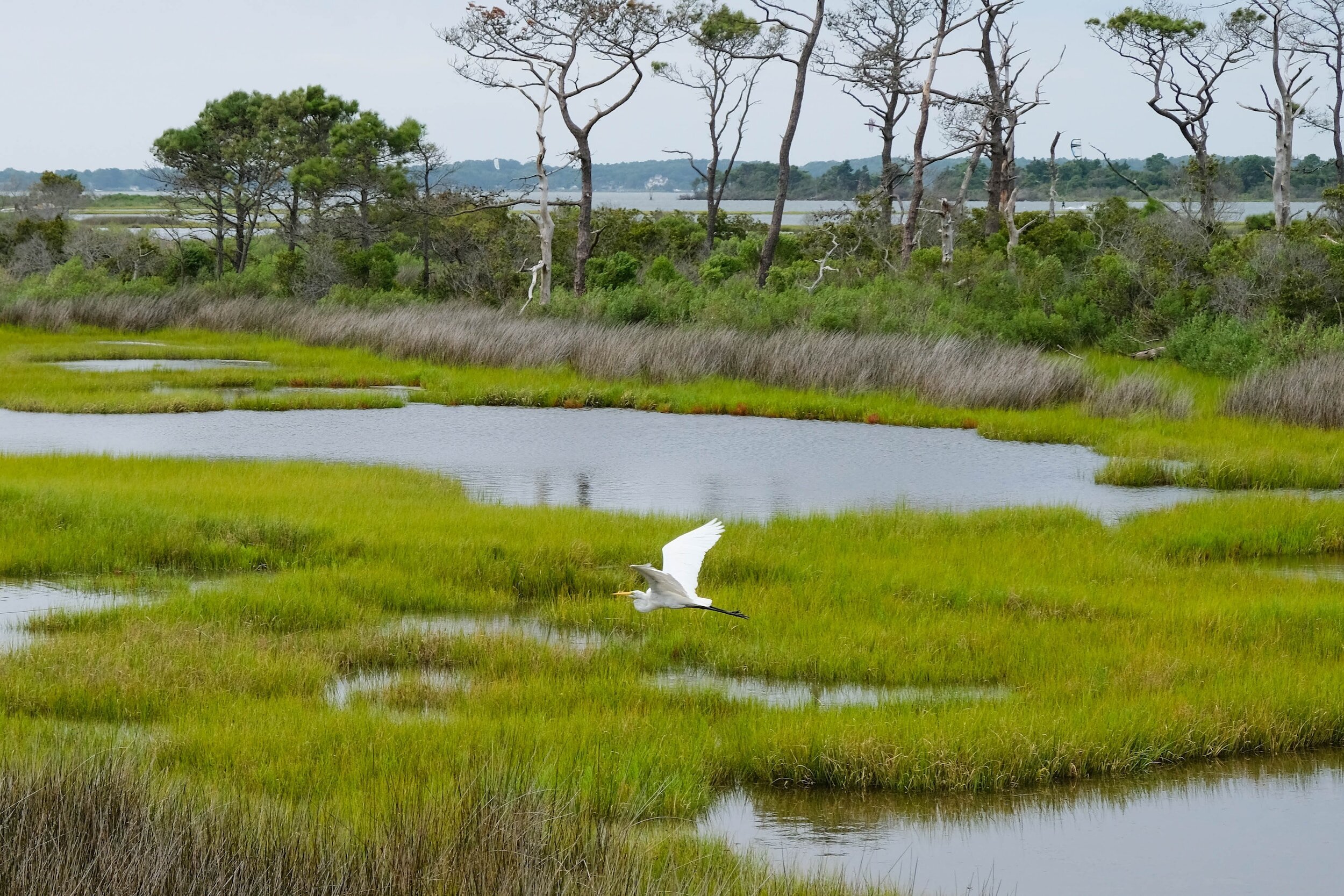
State & Regional Outreach
Virginia Coastal Resilience Master Plan: Technical Advisory Committee
Wetlands Watch is honored to serve on this important committee since its inception in 2020.
The goals of the committee are to
Provide guidance on flood hazard risk assessment by enhancing the quality of asset data inputs, refining the approach to quantifying asset vulnerabilities, and ensuring that impact assessment outputs effectively inform decision-making, coordination, and collaboration efforts.
Identify and analyze planned resilience actions, with a focus on uncovering shared themes and gaps among projects and initiatives submitted through the Coastal Resilience Web Explorer User Portal.
Develop future planning recommendations, which include
Proposing goals and corresponding metrics for resilience that should guide the evaluation and prioritization of projects in future Coastal Resilience Master Plans.
Developing objective protocols for assessing and prioritizing identified project needs within the Coastal Region, considering the distinct needs of critical human, built, and natural infrastructure.
Designing a process and establishing objective protocols for evaluating and prioritizing resilience actions, potentially utilizing separate evaluation criteria for different types of infrastructure.
Governance & Guidance
Wetlands Watch partners with a host of state and regional organizations, associations, work groups, and task forces on a regular basis. Please see our Partners page for details. Wetlands Watch staff serve in leadership roles in the following organizations:
Mary-Carson Stiff, Executive Director
Coastal Virginia Community Rating System Workgroup. Co-chair: 2015 to 2024.
Virginia Land Conservation Foundation, Vice-Chair: 2019 to 2024.
Virginia Coastal Resilience Master Plan, Technical Advisory Committee. Member: 2020 to present.
Virginia Floodplain Management Association. Board Member: 2016 to 2022.
Shereen Hughes, Assistant Director
Chesapeake Bay Landscape Professional Program. Member of the Steering Committee: 2014 to present.
Chesapeake Conservation Landscaping Council. Board Member: 2017 to present.
Living Shoreline Collaborative. Member of the Steering Committee: 2019 to present.
Upper and Middle James Riparian Consortium. Member of the Steering Committee: 2019 to present.
Rappahannock River Roundtable Technical Advisory Board. Board Member: 2021 to present..
Stacie McGraw, Associate Director.
Living Shoreline Collaborative. Member of the Steering Committee: 2022 to present.
Ian Blair, Public Policy Program Director
Virginia Coastal Resilience Master Plan, Coastal Resilience Technical Advisory Committee. Subcommittees: Project Prioritization, Outreach & Coordination, and Research, Data, & Innovation. Member (alternate). Member (alternate): 2024 to present.
Genevieve Guerry, Flood Risk Project Staffer
Virginia Community Rating System Workgroup. Chair: 2025.
Recent Public Comments
July 31, 2024. Letter from the Chesapeake Conservation Partnership regarding the Future of the Chesapeake Bay.
The Chesapeake Conservation Partnership, a coalition of over 100 organizations (of which Wetlands Watch is one), has provided input on future plans for the Chesapeake Bay's health and sustainability. In this letter, we stress the importance of public involvement, science-driven conservation efforts, and restoration actions. The partnership calls for stronger efforts to permanently protect important lands, emphasizing how conserving forests, wetlands, and natural areas is crucial for the Bay's long-term health. We also emphasize the need for equitable access to green spaces, especially in underserved communities, to ensure everyone benefits from conservation efforts. Finally, we urge decision-makers to adopt these recommendations to help secure a healthy and vibrant Chesapeake Bay for future generations.
March 27, 2024. Letter from the Chesapeake Bay Foundation and Wetlands Watch regarding the Virginia Department of Environmental Quality’s proposed updates to the Virginia Runoff Reduction Method (VRRM) and Stormwater Management Handbook.
In this letter, we express concerns that the proposed adoption process may limit stakeholder input and that the updates could negatively impact the Chesapeake Bay watershed. We urge DEQ to follow proper procedures for evaluation before implementation